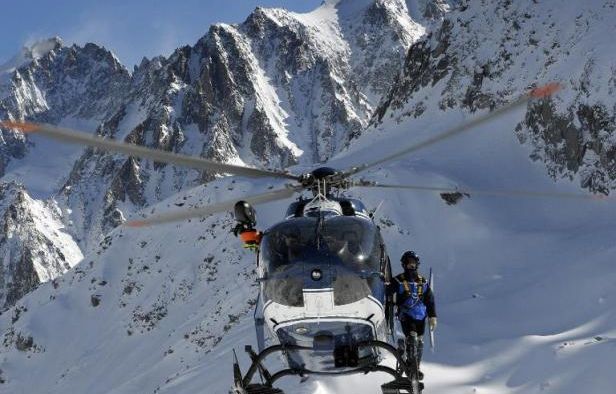Last Sunday, three people died in ski accidents, in Savoie and Haute-Savoie. The same weekend, a grandmother died trying to save her grandchildren from a ravine while they were sledding in Ain. Have there been more serious accidents in recent weeks? For what ? What should be done to avoid accidents? 20 minutes asked these questions to Lieutenant-Colonel Bertrand Host, head of the high mountain gendarmerie platoon (PGHM), in Chamonix.
At mid-season, can we say that there are more accidents than in previous years?
It is still too early to make comparisons with other years. But just last weekend, the PGHM of Haute-Savoie intervened 34 times, with three fatal accidents related to alpine skiing and hiking. For example, five interventions concerned the Vallée Blanche glacier. Among the victims, there were two tourists and a regular, but the profile has nothing to do with accidentology. We intervene as much on professionals as on amateurs. We are all equal when faced with the dangers of the mountains, especially falling rocks or avalanches. What will make the difference is the analysis made at the start of the race.
Are there specific reasons for this increase in accidents?
The increase in weekend accidents is linked to the start of school holidays and therefore to greater frequentation of the massif and ski resorts. For two of the fatal cases, it was about unscrewing in ski touring, with icy snow therefore very hard and slippery, which made them go down very quickly without being able to slow down. Accidents are not necessarily linked to the lack of snow and the rocks that come out.
We also know that when we come on vacation, we don’t want to impose constraints on ourselves. So we don’t pay attention to the decrees on the slopes, which are essential to know the opening hours and what is authorized or not.
What are your advices ?
It is therefore essential to read and respect the decrees, which makes it possible to avoid finding yourself in front of a snow groomer or blocking the opening of the station which cannot make a Pida (avalanche triggering intervention plan) at because of a skier in the wrong place. You also have to master and adapt your speed on the slopes on which you are evolving but also know your level to choose those that correspond. Without forgetting to equip yourself with a helmet and back protectors in case of falls. Moreover, sledding is also a sliding sport that requires these protections. Too often we find ourselves intervening for trauma in children.
If you go into the mountains, you must be equipped with a DVA, a transceiver to signal your position under the avalanche, a shovel and a probe. You also need a charged means of alert, such as a mobile phone. Before leaving, it is essential to find out about the weather and snow conditions. And if you only have to remember one thing, always go with at least two. The mountain is not a sport that is practiced alone.
At your level, how do you prevent these risks?
For the winter season, the gendarmerie has a reinforced device. We also carry out awareness-raising and inspection actions in the stations. If the regulations are not respected, we can verbalize by putting 4th class fines. The goal is to allow everyone to make the most of their holidays. There is nothing more incomprehensible for a group than coming to the mountain and leaving with one less family member. It is important to be informed and to have the right behaviors.

